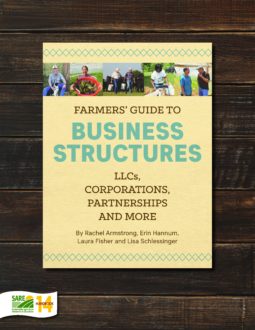Prohibitions on Farmland Ownership and Leasing
Several Midwestern states limit the ability of corporations and LLCs to control farms and farmland. The statutes laying out these rules are commonly referred to as “anti-corporate farming” laws. Although they vary, these laws generally prohibit limited liability companies and corporations from owning or leasing farmland. Iowa, Kansas, Minnesota, Missouri, North Dakota, Oklahoma, South Dakota and Wisconsin all have anti-corporate farming laws on the books.
Despite the breadth of these laws, many farm business entities will not be directly affected. Farm LLCs and corporations usually do not actually own farmland, so prohibitions on farmland ownership are not a problem. Instead, an individual shareholder or member maintains title to farmland itself; ownership is not transferred to the entity. Farmers often do this for liability insulation. Because the farm business’s assets are still available to satisfy farm business liabilities, maintaining the land in private, individual ownership protects it from business liabilities. In these cases, the individual shareholder or member leases the farmland to the business entity.
Where state law also prohibits LLCs and corporations from leasing farmland, of course, farmers might still run into problems. In these cases, farmers often rely on exceptions for small and family-owned farm businesses. Every state with an anti-corporate farming law allows entities with just a few related shareholders or members to own or lease farmland.
Innovative and less traditional farm business entities may face potential complications with anti-corporate farming laws. The affordability of farmland is a barrier for many beginning farmers. To deal with this problem, communities are creating innovative opportunities for groups of people to contribute money to an emerging farm business operation in exchange for a later return on their investment. In other areas, farmers are organizing LLCs, corporations and cooperatives to collectively purchase and manage farmland as a group. Both of these examples can lead to inadvertent violations of anti-corporate farming laws, as this chapter will illustrate.
Why Do these Laws Exist?
Most anti-corporate farming laws were passed between the 1930s and the 1970s with a goal of protecting and preserving smaller family-based farms as the ideal ownership structure. Tightly knit farm operations are perceived as more closely connected to the land and thus more inclined to faithfully guard farmland resources. When these laws were passed, the vast majority of farms were organized as sole proprietorships or general partnerships. Farm corporations were rare and limited liability companies did not exist in many states when these laws were passed. Corporations were viewed suspiciously as distant, anonymous and not responsible to the communities in which they operated, and are still viewed that way by many. The road hasn’t been a smooth one for anti-corporate farming laws. Constitutional challenges and modification by legislatures have weakened or eliminated state laws or individual provisions. Even farm advocates feel these laws have not fulfilled their original objective and are just a trap for the unwary. Some rural communities feel these laws limit solutions to the complex but endemic problem of the loss of small, family farms from the countryside. Regardless of their practical effect, these laws are still a relevant consideration for beginning farm businesses in the Midwest.
Look Before You Leap
Anti-corporate farming laws are still the rule in Iowa, Kansas, Minnesota, Missouri, North Dakota, Oklahoma, South Dakota and Wisconsin. In the next section, we present state-by-state flowcharts that can help you navigate your state’s anti-corporate farming laws. Farmers in these states who are considering forming a corporation or LLC should first consult these flowcharts. But before we get there, please keep these important notes in mind.
These flowcharts:
- Are designed to help farmers identify if there are issues they must explore further
- Do not provide definitive answers about how anti-corporate farming laws affect a specific operation
- Do not thoroughly explain each state’s laws
- Do not explore all possible exceptions or explain all obligations for anyenterprise
This chapter and the accompanying flowcharts are designed to be read in connection with this Guide as a whole. Unlike previous chapters, this chapter does not go into detail about what a shareholder or member is or what the phrase “percentage interest” means, to highlight just two examples. Farmers should read this Guide as a whole before delving into this section. Anti-corporate farming laws are always subject to legislative change and evolving interpretations by the courts. Remember, these flowcharts are only designed to assist farmers in identifying whether they may be eligible for an exemption from ownership or leasing of farmland. All farmers will need to seek more information from an attorney to fully understand their obligations.
Next Steps
Farmers in Iowa, Kansas, Minnesota, Missouri, North Dakota, Oklahoma, South Dakota and Wisconsin should check the flowcharts on the following pages if they are considering forming an LLC or a corporation.
Anti-corporate farming laws may change over time. Check with an attorney in your state for updated information. If you live in a state that does not have an anti- corporate farming law at the time this book was printed, it is unlikely such a law has been created. However, it’s best to check with an attorney to confirm.
